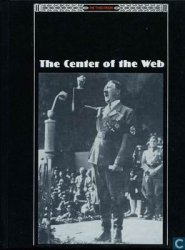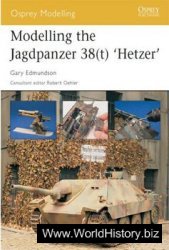PAUL ACKER (Leif Eriksson) is Professor of English and Director of Creative Writing at Saint Louis University, as well as the editor of the journal ANQ. He is the author of Revising Oral Theory: Formulaic Composition in Old English and Old Icelandic Verse (New York: Garland, 1998), co-editor (with C. Larrington) of The Poetic Edda: Essays on Old Norse Mythology (New York: Routledge, 2002), and translator of The Saga of the People of Floi and Valla-Ljot’s Saga in The Complete Sagas of Icelanders, Including 49 Tales (Reykjavik: Leifur Eiriksson, 1997) 3:271-304 and 4:131-47. He has also written many articles, primarily on Old English, Middle English, and Old Norse literature, in addition to being a published poet.
LOUISE M. BISHOP (Geoffrey Chaucer) is Associate Dean of the Robert D. Clark Honors College and Associate Professor of Literature at the University of Oregon, specializing in fourteenth-century Middle English poetry and prose. She is the author of Words, Stones and Herbs: The Healing Word in Medieval and Early Modern England (Syracuse, NY: Syracuse University Press,
2007) and has also published articles on the poetry of Geoffrey Chaucer and William Langland. She has essays on the myth of the flat earth in Misconceptions about the Middle Ages, edited by Stephen J. Harris and Bryan Grigsby (New York: Routledge, 2008) and on Shakespeare and Chaucer in Medieval Shakespeare in Performance, edited by Sid Ray and Martha W. Driver (New York: MacFarland, 2009).
JAN K. BULMAN (Abelard and Heloise) is Associate Professor of History at Auburn University Montgomery. She has published The Court Book of Mende and the Secular Lordship of the Bishop: Recollecting the Past in Thirteenth-Century Gevaudan (Toronto: University of Toronto Press,
2008) . She has also contributed articles on “Magic in Europe: 1000-1500,” “Europe’s Urban Revolution,” “Humanist Academies,” and “National Monarchies and Representative Assemblies” to ABC-Clio’s 21-volume World History Encyclopedia, edited by Alfred J. Andrea (2011). She is currently working on a project that examines the complete records from a fourteenth-century black magic trial that took place in the episcopal court in the diocese of Mende.
MELISSA COLL-SMITH (Maimonides) recently gained her DPhil from the University of Oxford, where she was a member of Jesus College; her dissertation is entitled “The Scottish Legendary and Female Saints’ Lives in Late Medieval Scotland.”
VINCENT J. CORRIGAN (Hildegard of Bingen) is Professor Emeritus of Music History, Literature, and Harpsichord at Bowling Green State University, specializing in the medieval period. He is the co-editor (with Barbara R. Walters and Peter T. Ricketts) of The Feast of Corpus Christi (University Park: Pennsylvania State University Press, 2006) and is a prolific contributor to edited volumes on medieval European music. He has given performances in Corfu, Greece, and at the Toledo Museum of Art and Bluffton University in Ohio, and as the soloist in concerts with the Toledo Symphony Orchestra and the Perrysburg Symphony Orchestra.
ANNA KIRKWOOD GRAHAM (Francis of Assisi) is currently Assistant Visiting Professor in Classical Studies at Michigan State University. She received her PhD from the University of Toronto (she also holds a JD). Her primary research interests are Medieval Latin and paleography.
ELIZABETH K. HALLER (Dante) is Assistant Professor of British Literature at Northern State University in South Dakota. Her focus is Victorian literature, primarily the works of the Bronte sisters, with a secondary focus in trauma theory, though she also has a long-standing interest in Dante’s Divine Comedy. She has published articles such as “Guise and the Act of Concealment in Jane Eyre” and “Perception and the Suppression of Identity in Vil-lette” in Bronte Studies, and she is currently working on a book-length study of trauma in the works of Charlotte Bronte.
DOMINIQUE T. HOCHE (Charlemagne; Eleanor of Aquitaine) is Assistant Professor of Medieval Literature at West Liberty University in West Virginia. She is the author of The Reception of Christine de Pizan’s ‘Fais d’armes’ in Fifteenth-Century England: Chivalric Self-Fashioning (Lewiston, NY: Edwin Mellen Press, 2007), and she is currently working on a study of medieval visual literacy.
ALEXANDER L. KAUFMAN (Robert the Bruce and William Wallace) is Associate Professor of English at Auburn University Montgomery. He has authored The Historical Literature of the Jack Cade Rebellion (Farnham, Surrey: Ashgate, 2009) and edited British Outlaws of Literature and History: Essays on Medieval and Early Modern Figures from Robin Hood to Twm Shon Catty (New York: McFarland, 2011).
STEPHEN T. KNIGHT (King Arthur and Merlin; Robin Hood) is Distinguished Research Professor in English Literature at Cardiff University, Wales. His principal research interests are medieval cultural studies, crime fiction, and Welsh fiction in English. He is the author of many books, including Structure of Sir Thomas Malory’s Arthuriad, Australian Humanities Research Council Monograph (Sydney: University of Sydney Press, 1970), Form and Ideology in Crime Fiction (London: Macmillan, 1980), Arthurian Literature and Society (London: Macmillan, 1983), Geoffrey Chaucer (Blackwell, Oxford, 1987), Continent of Mystery: A Thematic History of Australian Crime Fiction (Melbourne: Melbourne University Press, 1997), Robin Hood: A Mythic Biography (Ithaca, NY: Cornell University Press, 2003), A Hundred Years of Fiction: Welsh Writing in English (Cardiff: University of Wales Press, 2004), Crime Fiction 1800-2000: Detection, Death, Diversity (London: Palgrave Macmillan, 2004), and Merlin: Knowledge and Power (Ithaca, NY: Cornell University Press, 2009).
GEORGE LANE (Chinggis Khan) is Senior Teaching Fellow in the History of the Middle East and Central Asia in the Department of History at the School of Oriental and African Studies, University of London. He is the author of Early Mongol Rule in Thirteenth-Century Iran: A Persian Renaissance (London: Routledge Curzon, 2003), Genghis Khan and Mongol Rule (Westport, CT: Greenwood Press, 2004), and Daily Life in the Mongol Empire (Westport, CT: Greenwood Press, 2006), as well as many book chapters and articles on the history of the Middle East and Central Asia, medieval Iran, and the Mongol Empire. He is also the editor of the forthcoming Steppe Empires and Silk Roads: Historical Sources on the World of Genghis Khan.
MARGARET JOAN MADDOX (Joan of Arc) is a freelance writer whose doctoral dissertation has been published as Portrayals of Joan of Arc in Film: From Historical Joan to Her Mythological Daughters (Lewiston, NY: Edwin Mellen Press, 2008). In 2010, she delivered a three-part lecture series called A Joan for All Seasons for the Osher Lifelong Learning Institute at the University of Arkansas. She is the author (as Peggy Maddox) of “Retiring the Maid: The
Last Joan of Arc Movie,” Journal of Religion and Popular Culture 3 (Spring 2003), online journal at Http://www. usask. ca/relst/jrpc/art-joanofarc. html. As Maeve Maddox, she is the author of the e-book 100 Writing Mistakes to Avoid (2010). She is also a contributor on language to www. dailywritingtips. Com/, While her teaching site AmericanEnglishDoctor. com focuses on literacy and general knowledge.
WILLIAM G. MARX (Thomas More) is Senior Specialist/Adviser Emeritus at Michigan State University, whose doctoral dissertation examined medieval religious drama in modern production, an area on which he has presented many conference papers. He is the author of “The Problem with Mrs. Noah: The Search for Performance Credibility in the Chester Noah’s Flood Play,” in From Page to Performance: Essays in Early English Drama, edited by John A. Alford (East Lansing: Michigan State University Press, 1995) and co-editor and adapter (with Lister M. Matheson and Robert L. Kinnunen) of the forthcoming book Staging Salvation: Six Medieval Plays in Modern English.
CLIFFORD J. ROGERS (The Siege: An Iconic Form of Medieval Warfare) is Professor of History at the United States Military Academy. He is the author or editor of many publications, including (ed.) The Military Revolution Debate: Readings on the Military Transformation of Early Modern Europe (Boulder, CO: Westview Press, 1995), (ed.) The Wars of Edward III: Sources and Interpretations (Woodbridge, Suffolk: Boydell Press, 1999), War Cruel and Sharp: English Strategy Under Edward III, 1327-1360 (Woodbridge, Suffolk: Boydell Press, 2000), (ed., with Mark Grimsley) Civilians in the Path of War (Lincoln: University of Nebraska Press, 2002), and Soldiers’ Lives through History—The Middle Ages (Westport, CT: Greenwood Press, 2007). He is the editor of The Oxford Encyclopedia of Medieval Warfare and Military Technology (New York: Oxford University Press, 2010).
JOEL T. ROSENTHAL (Richard III) is Distinguished Professor Emeritus in the Department of History at the State University of New York at Stony Brook. His main research interests include medieval and early modern European family history, women’s history, and social history. He is the author of many books, including The Purchase of Paradise: Gift Giving and the Aristocracy, 1307-1485 (London: Routledge and Kegan Paul, 1972), Patriarchy and Families of Privilege in Fifteenth-Century England (Philadelphia: University of Pennsylvania Press, 1991), Old Age in Late Medieval England (Philadelphia: University of Pennsylvania Press, 1996), Telling Tales: Sources and Narration in Late Medieval England (University Park: Pennsylvania State University Press, 2003), and Margaret Paston’s Piety (New York: Palgrave Macmillan, 2010). He has also edited many books, such as (with Constance M. Rousseau) Women, Marriage, and Family in Medieval Christendom: Essays in Memory of Michael M. Sheehan, C. S.B. (Kalamazoo: Medieval Institute Publications, Western Michigan University, 1998), (with Martha Carlin) Food and Eating in Medieval Europe (London: Hambledon Press, 1998), (with M. Teresa
Tavormina and Paul Szarmach) Medieval England: An Encyclopedia (New York: Garland, 1998), and Understanding Medieval Primary Sources: Using Historical Sources to Discover Medieval Europe (London: Routledge, 2011).
MARILYN STOKSTAD (Castles: Medieval Icons of Power, Wealth, and Authority) is Judith Harris Murphy Distinguished Professor of Art History Emerita at the University of Kansas, Lawrence, and consultative curator of medieval art at the Nelson-Atkins Museum of Art in Kansas City, Missouri. She is the author or co-author of the textbooks Art History (1995; 4th ed., New York: Prentice Hall, 2005), Art: A Brief History (2000; 4th ed., New York: Prentice Hall, 2004), and Medieval Art (1986; 2nd ed., Boulder, CO: Westview Press, 2004). Her scholarly work includes studies on twelfth-century sculpture, medieval gardens, and the pilgrimage to Santiago de Compostela. She has also served as a consultant to the Saint Louis Art Museum, the World Book Encyclopedia, and several major book publishers.
LISSETTE LOPEZ SZWYDKY (Vlad III Dracula) is currently the Strategic Initiatives Coordinator for the Office of Global Programs at Pennsylvania State University, where she works to advance the university’s internationalization goals. Her doctoral dissertation, “Adaptations: The London Stage as Entertainment Industry, 1790-1890,” is an investigation of nineteenth-century theatrical dramatizations of novels and their impact in shaping each novel’s reception history. Her publications include “Victor Hugo’s Notre-Dame de Paris on the Nineteenth-Century London Stage,” European Romantic Review 21, no. 4 (2010) and “Rewriting the History of Black Resistance: The Haitian Revolution, Jamaican Maroons, and the ‘History’ of Three-Fingered Jack in English Popular Culture, 1799-1830,” Circulations: Romanticism and the Black Atlantic, ed. by Paul Youngquist and Fran Botkin, Romantic Circles Praxis Series (forthcoming).
EMILY Z. TABUTEAU (Thomas Becket) is Associate Professor of History and Associate Chair for Undergraduate Affairs of the Department of History at Michigan State University. Her primary research is on Anglo-Norman customary law in the eleventh and twelfth century, on which she has published Transfers of Property in Eleventh-Century Norman Law (Chapel Hill: University of North Carolina Press, 1988) as well as numerous articles.
This page intentionally left blank




 World History
World History









